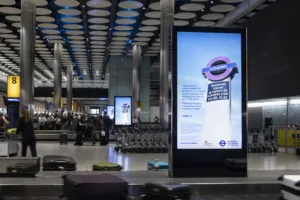By Farhad Divecha, Founder and MD of AccuraCast
The customer journey has evolved substantially over recent years. Not that lo
Now, inspiration and discovery is everywhere. Not just from the media or word of mouth but also on social networks. With over 500,000 million active users using Instagram daily1 and 2.7 billion active users on Facebook2, many of whom are sharing information, inspiration and opinions, the journey hasn’t just changed direction; it’s been completely overhauled.
Travel companies have in recent times had to figure out their place in that customer journey in order to catch the attention of the right customer, at the right time. Marketeers of hotels, airlines, tour operators and destinations have all had to step back and consider whether their brand c
While this is no secret to marketeers, 2020 has changed the nature of the beast entirely, particularly in the travel industry, where many are changing their strategies to incorporate the likes of TikTok, Pinterest, Facebook and Instagram. What was originally a linear journey became very sporadic. And now with the pandemic wreaking havoc on all our lives, it’s become even more complex.
The Age of COVID-19
With the pandemic comes a whole new set of requirements, concerns and preferences for consumers. Those are inevitably reflected in holiday searches as part of the ‘planning’ and ‘booking’ stages of the online customer journey. While previously one could simply log onto a travel comparison site to search for the perfect break, now we’re being pushed more to Google for those specific and out of the ordinary questions that have suddenly come into play and that you wouldn’t usually find on the criteria list of a travel website.
Usual criteria such as vegan friendly, eco-friendly, WiFi, breakfast included or air conditioning have now been replaced by searches filtered for safe, un
Because of travel restrictions imposed to curb the spread of COVID-19, there is much more of a prolonged period of consideration after initial discovery, creating more room for new players at the top of the market – providers who look at the booking process from the eyes of the consumers, taking into account their questions and worries, and find a way to alleviate them.
This prolonged discovery and consideration phase is the first layer of new opportunity around the new online customer journey.
The next layer of opportunity goes beyond the booking stage. At the moment, there is a very real concern about travel cancellat
To do this correctly, travel brands must incorporate this whole new change from the ground up and, in some cases, completely overhaul their business strategy; they must factor this risk and flexibility into prices, add it as a service unto itself in the overall marketing strategy. Travel brands must communicate regularly and
Understanding where their place is in the online customer journey is now simply the first step of many for travel brands. COVID-19 has taken the journey, shaken it, thrown in a few more cards and dealt a new hand. And it’s how travel brands react to that re-shuffle that will decide whether they succeed or whether they fail.









